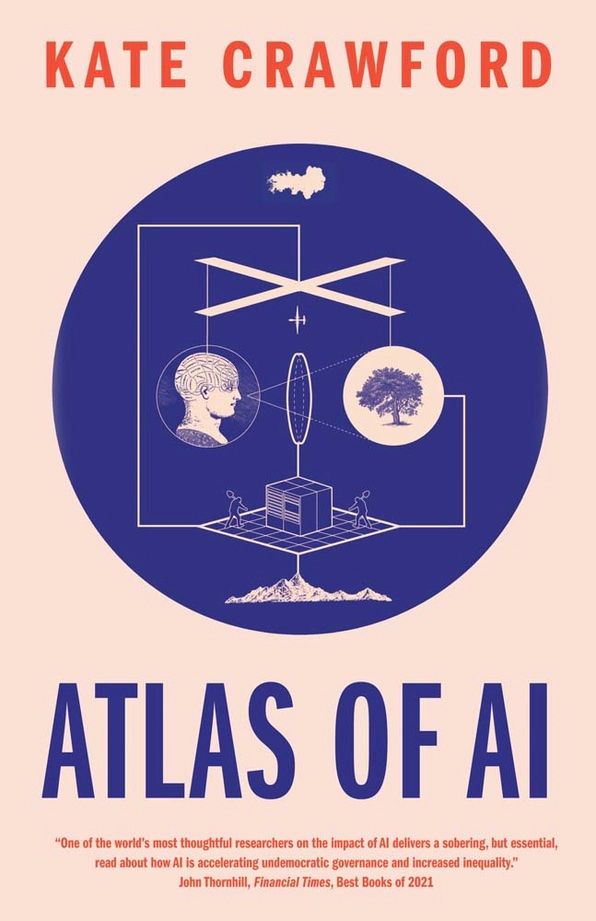
Atlas of AI
AI is neither artificial nor intelligent, contends AI scholar Kate Crawford in Atlas of AI, Power, Politics, and the Planetary Costs of Artificial Intelligence—a great conversation starter line, no doubt, in the Valley, or indeed closer to here at EPFL.
AI is neither artificial nor intelligent, contends AI scholar Kate Crawford in Atlas of AI, Power, Politics, and the Planetary Costs of Artificial Intelligence—a great conversation starter line, no doubt, in the Valley, or indeed closer to here at EPFL.
“Rather,” she writes, in her piercing analysis, “artificial intelligence is both embodied and material, made from natural resources, fuel, human labor, infrastructures, logistics, histories, and classifications.” So much for artificial. And if, in her view, it is not intelligent either, that’s because “AI systems are not autonomous, rational, or able to discern anything without extensive, computationally intensive training with large datasets of predefined rules and rewards.”
In addition, Crawford, an AI expert of great standing, doesn’t shy away from debunking what she believes to be two foundational myths of the field. The first is that nonhuman systems are similar to human minds, which assumes that sufficient training and resources—machine learning applied to large datasets—will allow the creation of human-like intelligence. “The second myth,” she contends, “is that intelligence is something that exists independently, as though it were natural and distinct from social, cultural, historical, and political forces. In fact, the concept of intelligence has done inordinate harm over centuries and has been used to justify relations of domination from slavery to eugenics.” What she does with her book, in other words, is take a wider lens to the discussion of AI to examine its political, physical, and environmental dimensions. Crawford’s book is a timely and essential contribution to the conversation around AI.
It encourages us to go beyond the “AI for good” platitudes and the problems of ethics and to consider the full impact of this profoundly transformational technology. On the environmental side, Crawford—a research scholar at Microsoft and visiting chair of AI and Justice at the Ecole Normale Supérieure in Paris—reminds us that AI is an extractive industry. Hence the Atlas in her book’s title: she takes us across the globe to places where the rare earth elements at the industry’s core are mined—“a brutal undertaking”—and to the data centers where our data is virtually extracted and upon which AI depends. Hers is a political book. She defines AI as a “massive industrial formation that includes politics, labor, culture, and capital,” arguing that “AI systems are ultimately designed to serve existing dominant interests.” Therefore, she maintains, while recognizing machine learning’s undeniable contributions to solving some very complex problems, we need to go beyond the technical prowess, and the algorithmic breakthroughs to ultimately ask ourselves: “what is being optimized, and for whom, and who gets to decide.”
